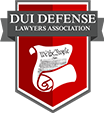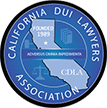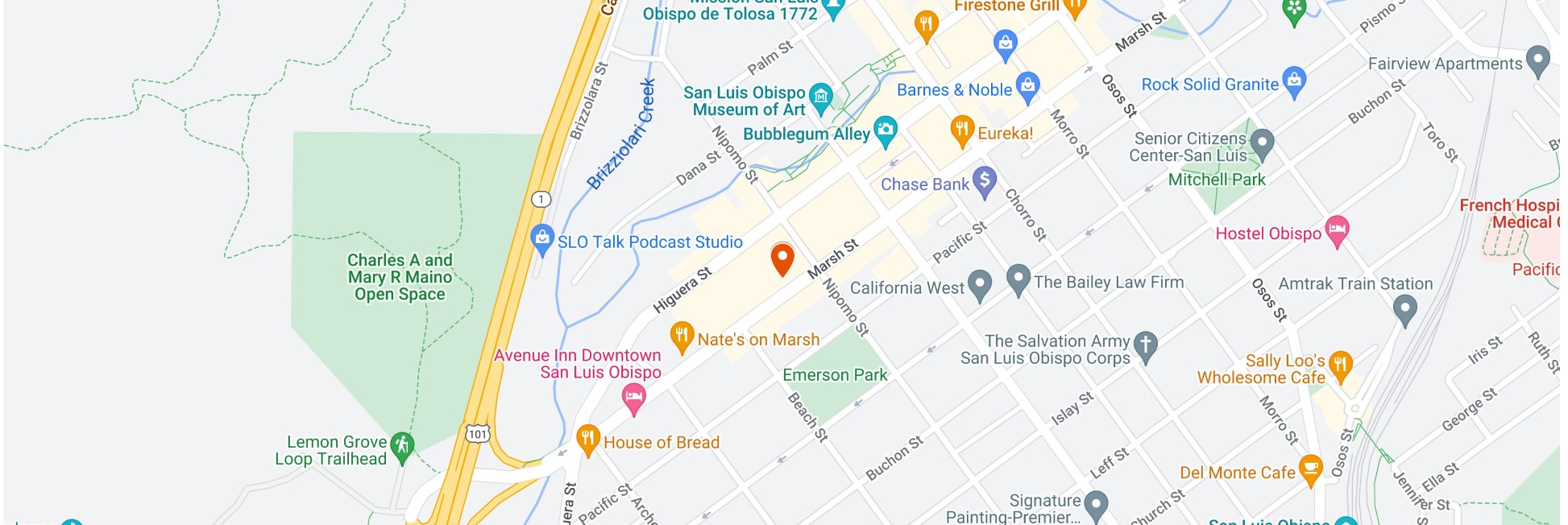Commercial drivers are held to a higher standard than other drivers in California. An arrest for drunk driving or other forms of negligent driving conduct on a commercial driver’s license, you risk facing serious penalties and collateral consequences. Having your commercial driver’s license suspended is one of the harshest consequences of DUI and other driving offenses.
The Department of Motor Vehicles (DMV) can often suspend your license after an arrest or by the court following your conviction. If you want to retain the driving privileges, you must fight your criminal charges and contest a DMV suspension.
Therefore, if you or a loved one faces criminal charges for commercial DUI in San Luis Obispo, CA, you must hire and retain a DUI attorney throughout your case. At San Luis Obispo DUI Attorneys, we offer the competent legal guidance you need to navigate your commercial DUI charges and secure a favorable outcome.
Understanding Commercial DUI laws in California
Under California DUI laws, commercial vehicles are classified into vehicles requiring the driver to hold a Class B license and those requiring one to hold a Class C license with commercial endorsement. Some examples of commercial vehicles include:
- Large trucks. A large truck is a vehicle weighing 26,000 pounds or a 3-axle vehicle weighing 6,000 pounds or more.
- Smaller vehicles. Some commercial vehicles like double trailers, tank vehicles, school buses, and passenger vehicles carrying up to ten people are covered under commercial DUI laws.
Commercial vehicles carry a large capacity of individuals, and an accident involving these cars could result in devastating results. For this reason, DUI laws are more stringent for anyone who operates on a commercial license. There are several ways a commercial driver can be arrested for drunk driving, including:
-
Driving with High Blood Alcohol Content
At DUI checkpoints or after an accident, police officers often administer breathalyzer tests to check a driver's BAC. After an official arrest, the driver may still be required to take a blood test which is the most accurate way to test the BAC. The BAC limit for driving on a commercial license is 0.04% in California. Therefore, if your BAC test results exceed the limit, you risk facing an arrest and DUI criminal charges.
-
Driving with Impaired Conduct
Drunk driving involves BAC evidence and your conduct. You could be considered drunk driving because the behavior you exhibited at the time of driving or the DUI stop indicates intoxication. The police officers could cite you for DUI for speeding, swerving, and running a red light. You could face criminal charges if you fail a field sobriety test or have obvious signs of intoxication.
-
Driving with Drugs in your System
DUI involves operating a vehicle with alcohol or drugs in your system. Drugs in this case could be illegal narcotics or prescription medication. Although the content or type of drug in your system cannot be detected using a breathalyzer, your blood sample is drawn and taken to a laboratory where a drug recognition test is done. If you test positive for drugs while driving a commercial vehicle, you could be charged with DUI and risk losing your license.
Commercial Driver’s License Suspension
Driving under the influence of alcohol or drugs on a commercial driver’s license attracts serious legal penalties, including jail time, fines, and mandatory attendance to DUI cases. One of the most serious penalties of the conviction is the loss of your driver’s license. The suspension period may leave you without your job and affect your livelihood. There are two types of driver’s license suspension in California:
Court-Imposed CDL Suspension
When you face an arrest for drunk driving on a commercial license, you will be booked into a jail cell, and the prosecutor will file criminal charges. Commercial DUI is charged under California Penal Code 23152(d). At your trial, the prosecutor must prove beyond a reasonable doubt that you drive a motor vehicle, you were under the drug or alcohol influence, and you are a holder of a commercial driver’s license.
The prosecutor will rely on the evidence collected at the DUI stop and your chemical test results to prove their case. At the end of your case, the court will find you guilty or not guilty of the commercial DUI charges. The nature of your charges and your criminal history dictate the length of your commercial license suspension. You could suffer the following forms of CDL suspension after your conviction:
- One-year suspension for a first DUI with no third-party injuries.
- Lifetime CDL revocation for a commercial DUI conviction.
- A three-year suspension for misdemeanor DUI causing injury.
- Five-year license revocation for felony DUI causing injury.
DMV Suspension
The DMV is the department responsible for issuing and suspending licenses. After your arrest for drunk driving or other driving offenses, the arresting officer forwards your case to the DMV. The Department of Motor Vehicle will attempt to suspend your commercial driver’s license even before you attend your criminal trial. Your license is seized at the DUI stop, and you will receive a temporary license good to operate for up to thirty days.
The DMV allows you up to o ten days after your arrest to schedule a hearing where you can contest the suspension of your license. If you fail to request a hearing or request it after ten days. If you request the hearing, the DMV will schedule it and issue a date when you or you will attend. DMV hearings are less formal than DUI criminal trials and are held in the DMV offices.
At the DMV hearing, the prosecutor will present evidence to prove by a preponderance of the evidence that you drove under drug or alcohol influence. The prosecutor builds their case using results of your chemical tests and testimony from the arresting officer. Often, the burden of proof at this hearing is lower than the one required to find you guilty of Violating California Vehicle Code 23152(d). Therefore, seeking legal guidance is key.
When preparing for a DMV hearing, you can explore the following tips:
- Discuss the defense you plan to raise at the hearing with your attorney.
- Review band organize the evidence.
- Review the evidence that the DMV.
After the DMV prosecution has presented its evidence, you have a right to cross-examine their witnesses and present your evidence. Some evidence that may help you avoid a license suspension include witness statements, surveillance videos, photos, and medical reports. Even when you are found not guilty in your criminal case, the DMV will not lift the administrative license suspension. Therefore, you must be aggressive when you fight to keep your license.
The following are some of the defenses that you could present at your DMV hearing:
No Driving
The DMV cannot suspend your commercial driver’s license when there is no evidence that you were operating the vehicle. If police officers arrived at the scene when everyone had left or moved out of their vehicles, it might be challenging to show that you were behind the wheel.
You Were not Intoxicated
Your blood and breath tests are key evidence in your DMV hearing. Often, the DMV will suspend your CDL if there is evidence of intoxication or the results of your BAC show an alcohol content of 0,04% or more. You can argue that the results were inaccurate or explain away your high BAC using medical records to show conditions like diabetes. Without the test results, your likelihood of winning the hearing is high.
The Arresting Officer Did not Explain the Consequences of Refusing to Take the Blood or Breath Test.
A law enforcement officer cannot force you to take a breath or blood test after an arrest for a commercial DUI. However, the consequences of the refusal are a mandatory driver’s license suspension. An arresting officer is responsible for informing you of your action's legal consequences. Failure to do this can help you win your DMV refusal hearing.
If you win your DMV hearing, your license suspension is set aside, and you can continue to operate while you wait for the outcome of your commercial DUI criminal case. However, if you lose the hearing, you will suffer a one-year driver’s license suspension.
DMV hearings are separate from your criminal case. Some of the benefits you accrue from scheduling and attending the hearing include the following:
- It helps you avoid an administrative suspension. Sometimes, you could face an administrative suspension and walk free in your criminal case. Even when you are found not guilty, you will still have to deal with the consequences of the suspension. Therefore, attending the hearing is critical.
- Gather evidence for use in your criminal court. The evidence presented by the prosecutor at the DMV hearing will likely be the same as the one they will preempt in your criminal case. Therefore, when you attend the hearing, you can gather information about the prosecutor’s case and use it to defend against your criminal charges.
Other Reasons for Commercial Driver’s License Suspension
Besides DUI, the following situations can attract a suspension of your commercial driver’s license:
-
Driving on a Suspended License
You can downgrade to obtain a restricted license when your CDL is revoked or suspended. However, in this case, the restricted license cannot be used to operate a commercial vehicle. If you drive a commercial vehicle with a suspended or revoked license, you risk facing criminal charges and an additional license suspension period. You will serve the additional suspension time after your initial suspension has elapsed.
-
Failure to Submit to Chemical Tests
Under California implied consent law, holding a valid driver’s license means you agree to chemical testing at a DUI stop or after an accident. You can refuse to take the breath test at the DUI investigation stage as long as you are not an underage driver. However, failure to submit to the blood tests after arrest will have serious legal consequences.
If the arresting officer reports that you declined the blood test, you will suffer an automatic suspension of your commercial DL. Additionally, if you face a conviction for commercial DUI after refusing to take the tests, you face more jail time and fines. When you face charges for chemical test refusal, you can schedule and attend a DMV hearing to defend your actions.
-
Accumulation of Points
For each traffic violation you commit in California, some negligent operator points are added to your record. The number of points you accumulate depends on the severity of your violations. If you have a CDL, you will earn more points than a driver with a personal license for the same violation. Some of the circumstances that could attract a suspension of your CDL include the following:
- You earn up to four points within one year.
- You receive six points in one year.
- You receive up to eight points in three years.
Reinstating a Commercial Driver’s License
After suspending your commercial driver’s license, you cannot petition for a restricted license throughout the suspension period. Therefore, you must wait until your suspension has elapsed to operate on the CDL. However, you can downgrade to a Class C license to qualify for the restricted license. The restricted license will allow you to:
- Drive to work or school.
- Take a family member to receive medical care.
- Drive a minor or depend on school when public transport is unavailable.
You can reinstate your CDL after the suspension period has elapsed. However, you must ensure that your personal DL is active. If you qualify to reinstate your license, the DMV will send you a notice indicating the instructions for the reinstatement process. If you suffered a CDL suspension after a DUI and downgraded your license, you must be relegated to a commercial license holder.
In addition to reapplying for the license, you may need to undergo a medical evaluation and a driving skills test to ensure that you are fit to operate a commercial vehicle. These tests are provided by the DMV when you apply to reinstate your license.
A successful reinstatement of a commercial driver’s license depends on the factors of your case and the results of your driving skills tests. Reinstating your CDL after a suspension is not an easy process. Therefore, you must hire an attorney and consult with a DMV officer on the steps you must follow. In addition to completing your suspension term, you must have met these obligations to qualify for a reinstatement:
- Serve your jail or prison time. License suspension is one of the penalties for your DUI and other driving offenses. The court may impose jail time and fines if you face a conviction. You cannot reinstate your CDL unless you have served your jail time or are released from alternative sentencing.
- Complete DUI. If your license is suspended because of drunk driving, you must complete the court-ordered DUI school before you begin the reinstatement proceedings.
- Obtain the proper vehicle insurance. Vehicle insurance varies depending on the license on which you operate. Therefore, if you have been operating on a personal license through the suspension period, you must pay for the right insurance to reinstate your CDL.
Reinstating your CDL is not free. The amount you must pay for reinstatement will vary depending on the severity of your offense. The DMV requires you to pay the following costs to reinstate your license:
- A $55 reissue fee.
- $100 to reinstate a CDL after an APS suspension.
- $15 for court restriction.
- $24 for a drug-related suspension.
Lifetime Commercial Driver’s License Suspension
Commercial drivers are punished harshly for involvement in driving crimes multiple times. With the level of training that these drivers receive, the law expects them to act carefully and avoid placing other people at risk of injuries or death. If you commit a traffic offense for a second time, you risk a lifetime license suspension. Another reason you can suffer this type of suspension is a conviction for a drug-related felony.
A permanent license suspension means you cannot reinstate your license and cannot operate a commercial vehicle. Although you can appeal the lifetime suspension, the DMV is reluctant to change its decision.
Find a Reliable DUI Defense Attorney Near Me
If you face an arrest and criminal charges for commercial DUI in California, you risk losing your commercial driver's license in a suspension or revocation. Unless you submit to chemical tests, you will not suffer an automatic driver’s license suspension after your DUI arrest. You have the opportunity to fight the suspension or by beating your criminal charges.
However, you must understand that the DMV will attempt to suspend your license in a proceeding that is separate from the criminal case. Therefore, you must schedule a DMV hearing to fight the suspension. Especially in your first DUI case, fighting a criminal case and winning a DMV hearing will require the guidance of a skilled DUI defense lawyer.
At San Luis Obispo DUI Attorneys, we understand the extreme impact that the loss of your commercial driver’s license could have on your life. Our top-notch attorneys will protect your legal rights and help you fight your license suspension. We serve clients seeking legal guidance to battle drunk driving charges in San Luis Obispo, CA. Contact us at 805-321-1000.







